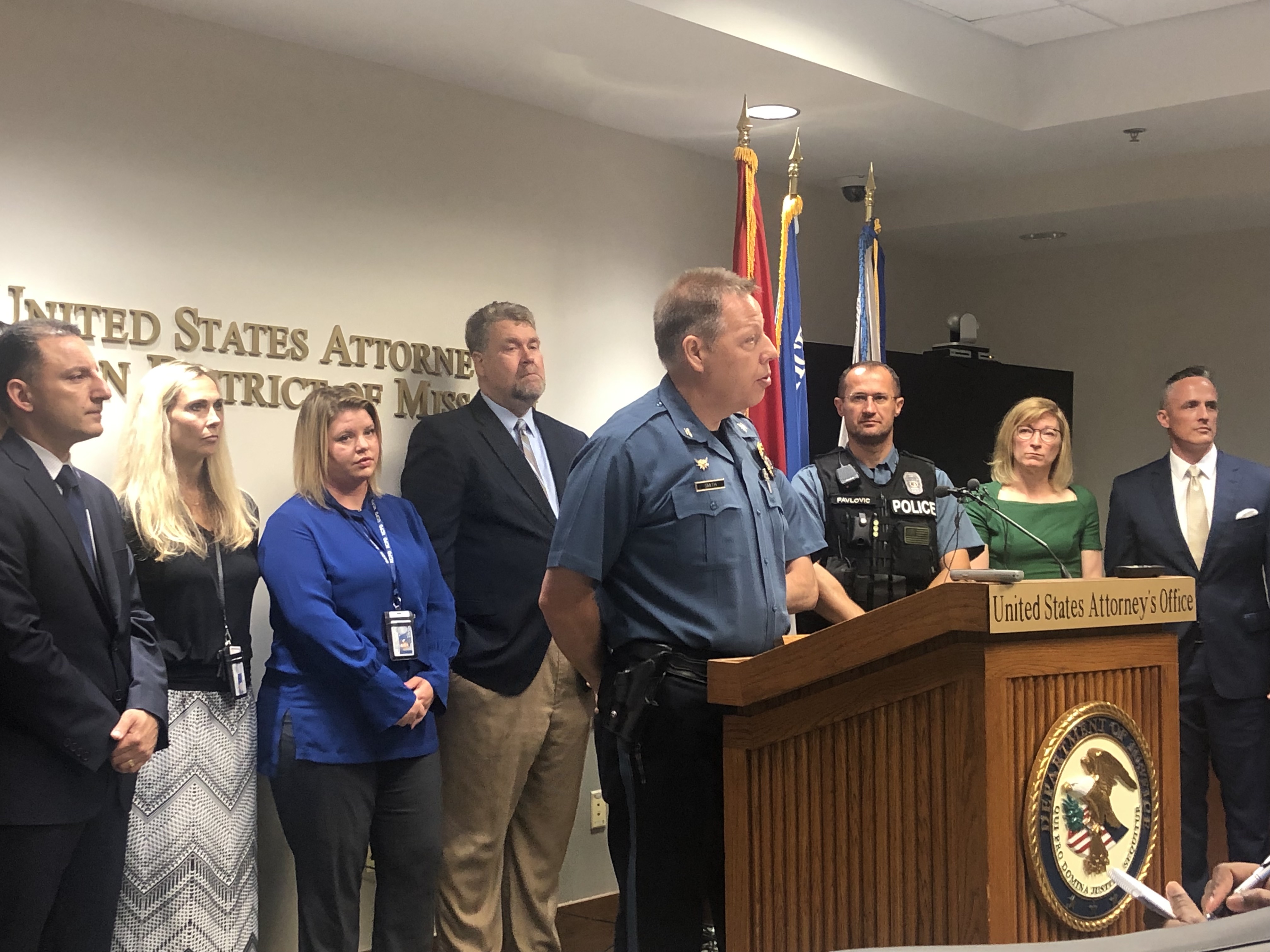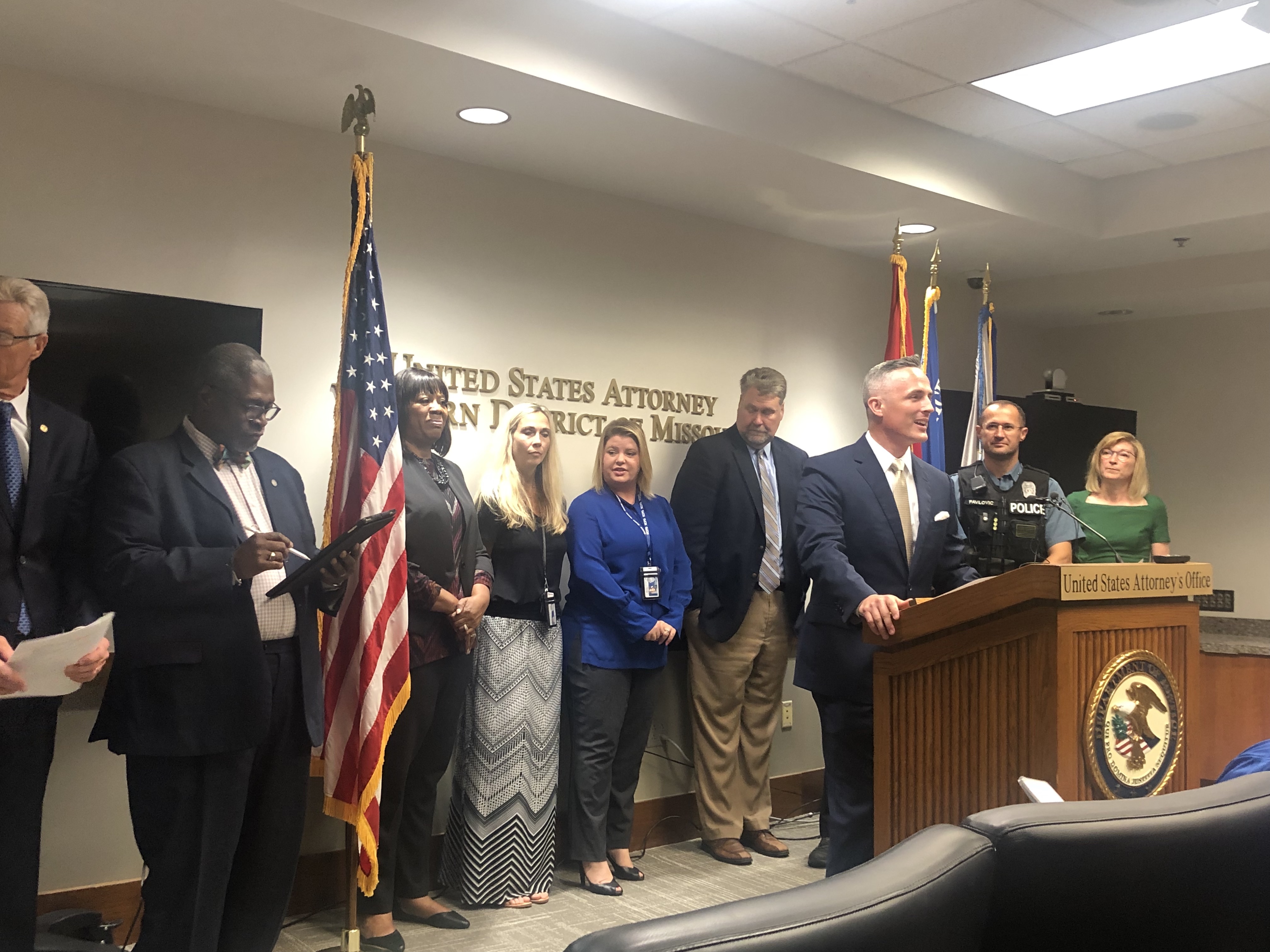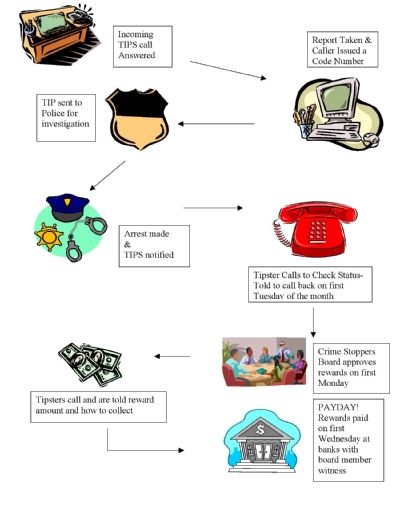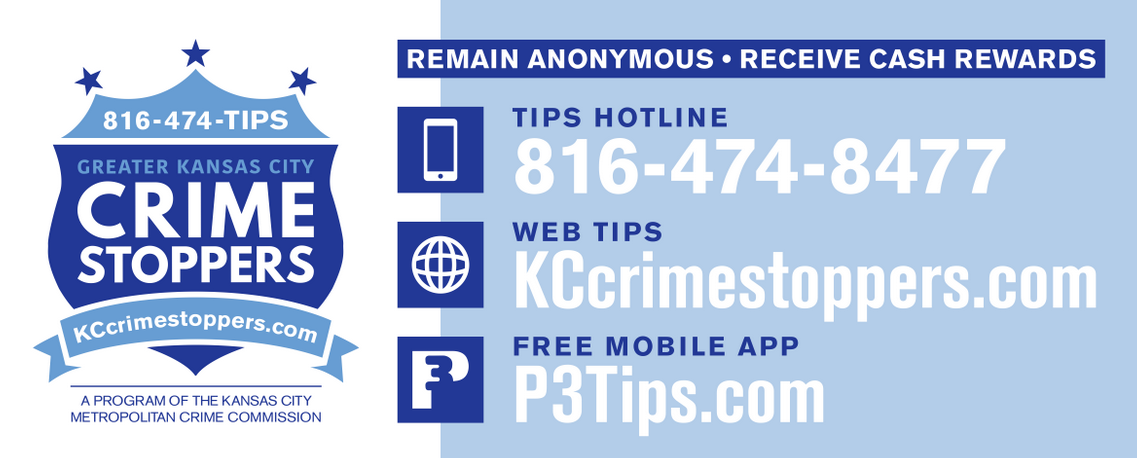

Elizabeth Orosco
Northeast News
Local crime-reduction agencies announced Friday a large increase in the TIPS Hotline reward and a shift in the focus of Kansas City No Violence Alliance (KCNoVA).
In an effort to spur more incentive for the community to offer tips to law enforcement, the reward for tips leading to an arrest in a homicide case will rise from $10,000 to $25,000—the highest reward in any city in the country.
Greater Kansas City Metropolitan Crime Commission President Rick Armstrong said he hopes this will bring more people forward in instances of violent crime.
“We think it’s going to be a compelling increase to have people become involved and put that information out to the police to help us keep our neighborhoods safe.”
Armstrong said the process to offer tips is completely anonymous and will remain so.
“Since 1982, no tipster’s name has ever been known to us. Period. It’s truly anonymous,” he said. “This is an absolutely safe and invisible way for people to receive $25,000 in cash for giving us information.”
Since Crime Stopper’s inception 37 years ago, 151,000 anonymous tips have been taken, they have helped clear 25,000 felony cases and helped solve 646 homicides to date. In total, Crime Stoppers has paid out over $1,413,282.00 in reward money.
In addition, Crime Stoppers is offering a guaranteed $1000 reward for anonymous tips of individuals using a firearm illegally, including buying, selling, using, or a felon in possession of a firearm.
Armstrong said this is a community problem.
“Every Kansas Citian needs to become involved. Use your voice to help keep your neighborhood safe,” he urged.
This reward increase will be funded by the city of Kansas City, Mo. in addition to any private funds collected to double the efforts.
Armstrong said the focus will be on three things: public awareness, anonymous reporting, and fast cash rewards.
Kansas City Police Chief Rick Smith discussed the shift in strategy for KCNoVA from targeting group related violence to targeting individuals who are frequently involved in gun-related crimes.
Since KCNoVA went into effect in 2014, group-related homicides have dropped from 64 percent of all homicides to 37 percent.
“But homicides continue to be an issue so we need to adapt,” he said.
The U.S. Department of Justice public safety partnership spent 18 months evaluating KCNoVA and advising the organization on areas to move forward.
“The result is the new enforcement strategy that targets the trigger-pullers,” Chief Smith said. “Empowered, connected, organized neighborhoods are the greatest crime deterrent our city has.”
Jackson County Prosecutor Jean Peters Baker said this issue requires community involvement.
“It requires groups like this to come together and requires collaboration and partnership. No one can work in silos. We must partner,” she said. “We need community to come to this table. In a lot of places, this whole problem of violence is laid squarely at the feet of usually two individuals: the mayor and the police chief. I want to tell you that is wrong. We all bear this burden together. All of us. It is not just their job to solve this problem for us, it is our problem. We live in this community and we need to help them succeed.”
How exactly does the TIP Hotline work?
Detective Kevin Boehm outlined how anonymous callers receive their cash reward if they are indeed, anonymous.
When a caller dials the TIPS Hotline, the information is taken down and the caller is issued a code number as their identity.
Boehm said the call is never tracked and there is no caller ID.
The anonymous tip is then sent to the police for further investigation. If an arrest is made, Crime Stoppers is notified of the successful tip.
Each month, the anonymous caller is directed to call back into the TIPS Hotline to check on the status of their tip on the first Tuesday of every month.
The Crime Stoppers Board approves tips every month.
Boehm said the tip is considered successful if it leads to an arrest or filing of charges. Tipsters don’t have to wait for a conviction.
If an anonymous tipster’s information led to an arrest or filing of charges, the tipster is then notified of a predetermined location to collect their reward money.
The money is paid in cash, not taxed, and is paid right away.
“We never see our tipsters. It’s always sight unseen,” said Boehm.
Crime Stoppers is not a part of the Police Department. A forty-member volunteer citizen board of directors oversees the Crime Stoppers TIPS Hotline, which is a nonprofit program under the 501.c.3. umbrella of the Kansas City Metropolitan Crime Commission.
For more information, visit kccrimestoppers.com.



















